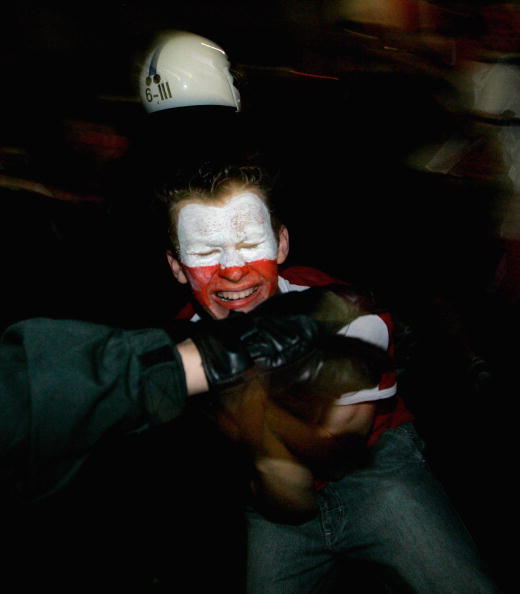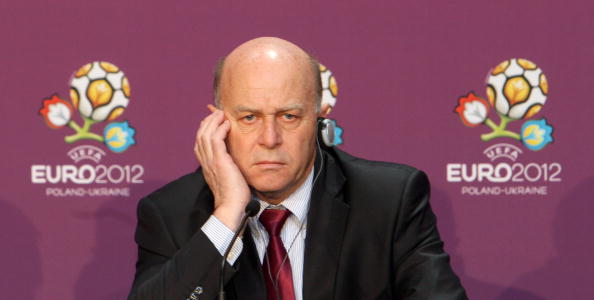By Andrew Warshaw in Warsaw
June 8 – On the day that marked exactly a year before Euro 2012 gets under way in Poland and Ukraine, eradicating fan violence was identified as a key concern for the tournament, the first ever major football event to be held in Eastern Europe.
Former Polish international Grzegorz Lato (pictured), now head of the country’s Football Association, used a press conference during a five-day media tour of facilities to bemoan outbreaks of crowd trouble that his country could well do without as they try to accentuate the positive.
Unlike his Ukrainian counterparts, who have answered almost every question by towing the party line during a series of briefings, Lato, who played in three World Cups and knows what it is like to appear on the big stage, did not mince his words.
“I am shocked by our hooligan fans,” said Lato in the presence of UEFA officials, and national and local politicians.
“In my career as a footballer I never experienced anything like that.
“There were no fights in stadiums and I can only apologise.”
Polish fans have a growing reputation as some of the most hardcore supporters in Europe.
The domestic Cup Final on May 4 was marred by a pitch invasion, while there was also trouble in Lithuania during a friendly earlier this year.

The Polish Government is introducing fresh laws to combat crime and Lato said: “One of our most important tasks is security.
“We will be implementing an ambitious plan aimed at wiping out hooliganism.
“England did it in the 1980s and we have the tools to do the same.”
UEFA general secretary Gianni Infantino admitted crowd trouble could not be swept under the carpet.
“The eyes of the world will be on Poland,” he said.
“It’s an issue we are treating very seriously and we have to tackle it.”
Having spent 48 hours in neighbouring Ukraine, reporters were flown into Poland to assess the readiness of the other joint hosts.
Although the revamped national stadium in the capital looks impressive with its central steel needle towering into the sky, the retractable roof is still far complete.
The stadium, constructed on the site of one of largest markets in Europe, was due be opened with a celebration friendly against Germany on September 6 but Government officials concede the game now seems certain to be switched elsewhere, probably to Gdansk.
“Maybe three of the stadiums will be a few weeks late but we still have a year to go,” said Infantino.
“There have been a few hiccups on the way and I have lost a few hairs worrying about the state of preparations, but a few delays will not alter our faith in Poland, or Ukraine for that matter.”
From Warsaw, reporters were flown on to Wroclaw in the south-west, a major industrial, commercial and educational city where a brand new compact stadium with excellent sight lines is close to completion on the outskirts.
Situated at the end of a half-built six-lane highway, it should provide an excellent atmosphere but getting to and from the city centre could prove more difficult than organisers predict, despite the promise of frequent rail, bus and tram links.
Those who do not have tickets should have just as much fun watching games from the fan zone in Market Square.
Contact the writer of this story at zib.l1734856351labto1734856351ofdlr1734856351owedi1734856351sni@w1734856351ahsra1734856351w.wer1734856351dna1734856351
Related stories
May 2011: Polish clubs forced to play in front of empty stadiums after cup final violence
May 2011: UEFA officials watch as football fans run rampage after Polish Cup Final
March 2011: UEFA admit to concerns over hooliganism and infrastructure for Euro 2012 finals

